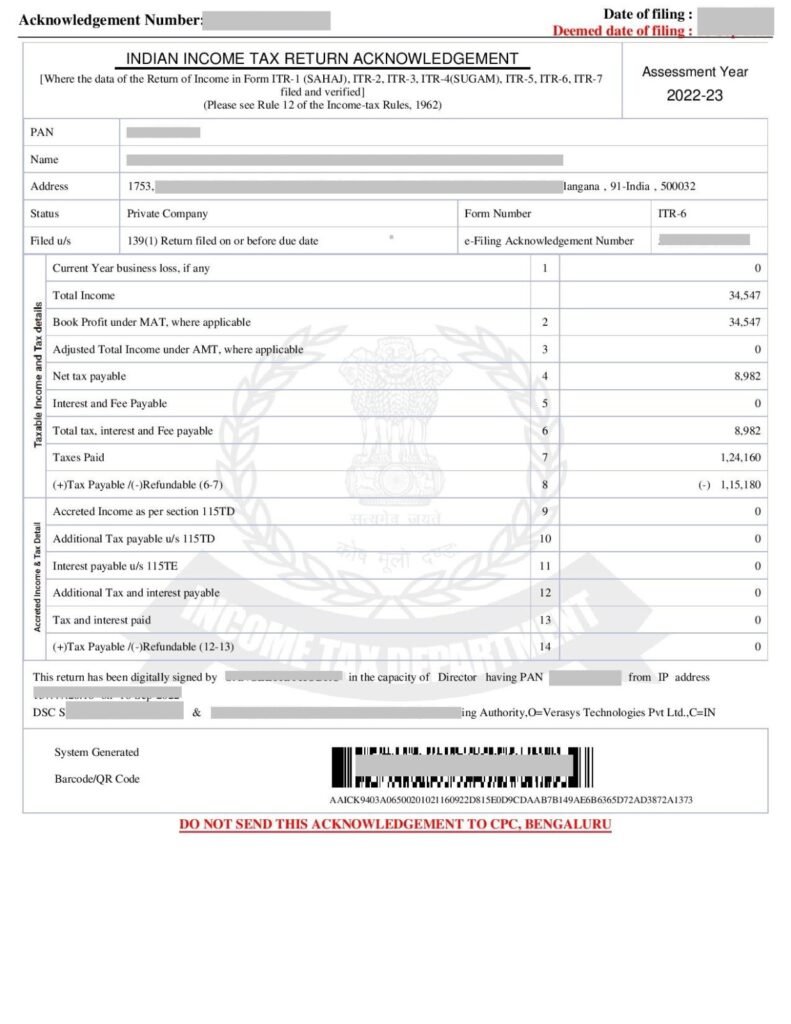ITR-6
If a company is not eligible for exemption under Section 11 of the Income Tax Act, 1961, it is required to file its income tax return using Form ITR-6. Section 11 provides exemption to income derived from property held for charitable or religious purposes. Therefore, companies that receive such income and qualify under Section 11 are exempt from filing ITR-6. All other companies, including those not claiming exemption under this section, must submit their returns electronically using the ITR-6 Form

Who is eligible to file ITR 6 Form?
- All companies, whether registered under the Companies Act, 2013 or the Companies Act, 1956, are required to file the ITR-6 Form. However, companies that earn income from properties held for charitable or religious purposes and qualify for exemption under Section 11 are not required to file ITR-6.
- Additionally, if the company’s sales, turnover, or gross receipts exceeded ₹1 crore in the previous financial year, it must have its accounts audited by a qualified Chartered Accountant as per the requirements of the Income Tax Act.
Who is eligible to file ITR 6 Form?
Companies that earn income from property held for charitable or religious purposes may claim exemptions under Section 11 of the Income Tax Act. In other words, an entity intending to avail of the exemption under Section 11 should not file Form ITR-6. Instead, such entities are required to file their returns using Form ITR-6.
Company’s PAN card and two Digital Signature Certificates (DSCs)
Details of loans taken from banks or third parties
List of outstanding receivables and payables
Bank details used for business transactions (including account number and IFSC code)
Bank statement used for business transactions
Detailed breakdown of business-related bank transactions
Rental agreement, if applicable
Proof of rental income, if any
Savings certificates or documents for deductions under Section 80C
Form 26AS (Tax Credit Statement)
Monthly purchase bills and purchase return details
Monthly sales bills and sales return details
GST payment challans
Records of daily administrative and general expenses
Invoices for fixed assets (if applicable)
Investment details made in cash
Investment details made through bank transactions
Proof of sources for cash inflow and outflow
Bank statements covering the period from 1st April to 31st March
Information related to bank loans
Proof of foreign income (if applicable)
Details of foreign assets (if applicable)
